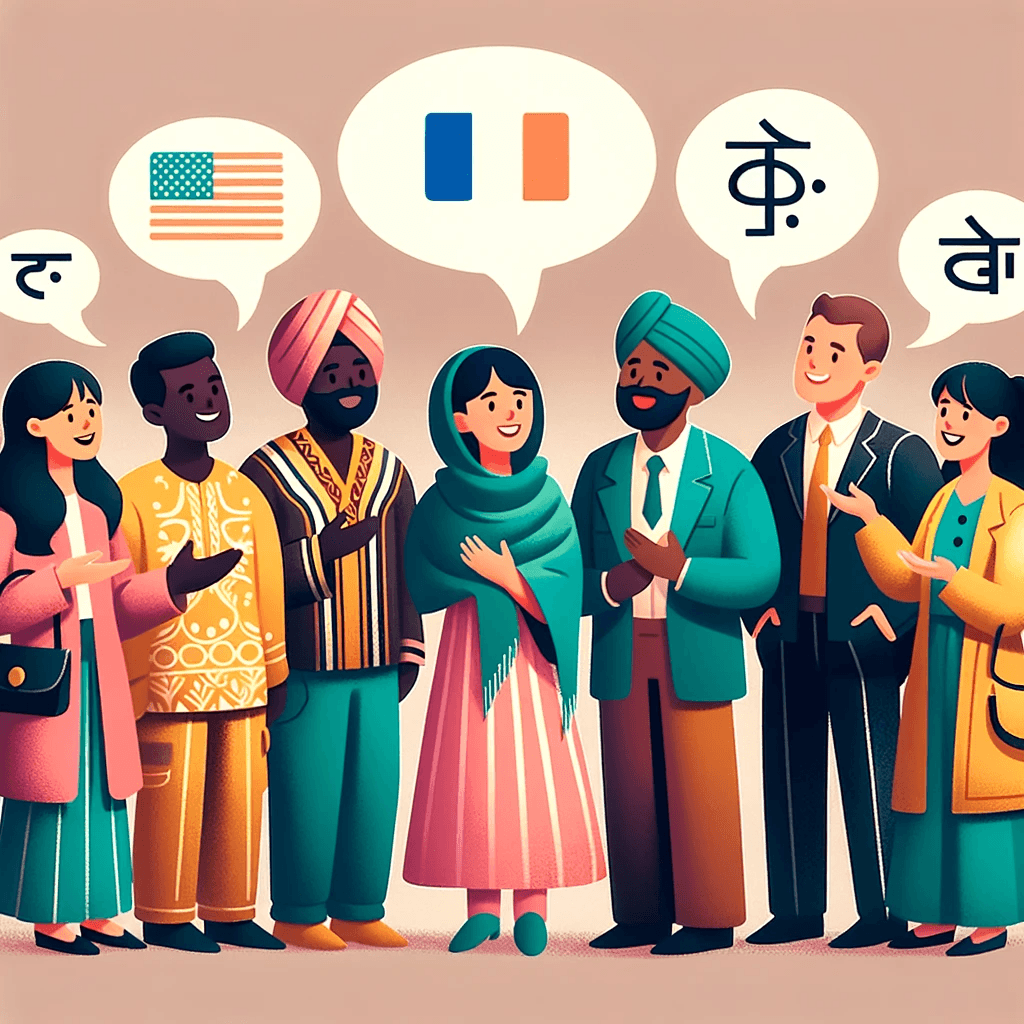The Francophonie: A Dive into the History and Influence of the French Language

Difficulty:B2
-
November 12, 2023
11/12/2023
Many ask "why study the Francophonie?" An increasing number of people are passionate about learning the French language. To better understand this growing fascination, enlightenment on the history and influence of the Francophonie becomes necessary.
Part 1: The Rich History of the Francophonie
The Historical Evolution of the French Language
French, like many other languages, benefits from a rich history intertwined with the history of its speakers. Originating from Latin, French has undergone several transformative changes before becoming what we know today. Its roots go back to Ancient Rome, with the Vulgar Latin spoken by Roman soldiers and settlers in Gaul. French played a crucial role in Europe, particularly in France, where it became the primary medium of communication and commerce. Understanding this historical evolution gives valuable hindsight to grasp the complexity and beauty of the French language.
The French language that we know today evolved from Middle French, which was spoken during the Middle Ages. While the impact of Latin is predominant, French was also influenced by various peoples such as the Gauls, Romans, Franks, and later the English. These diverse influences contributed to the syntactic and lexical richness of French.
The Expansion of the Francophonie Across the World
The influence of French far exceeds the borders of France. Thanks to travels, discoveries, and colonialism, French has found its way to other continents. In these new regions, French imposed itself, sometimes brutally, mixing and adapting to create a range of unique dialects. This influence is still visible today in various parts of the world, from Africa to Canada and the Caribbean.

French has also left its mark on other languages. Think of all the French words you already know and regularly used in English: "façade", "bouquet", "coup d'état", "gauche", and so on. These linguistic borrowings testify to the cultural and historical influence of the French language.
Part 2: The Global Influence of French
French as an International Language
The French language does not only color the past, but it is also a major actor of our present. It is one of the six official languages of the UN, in addition to being the official language, or one of the official languages, in more than 30 countries. French is widely used in international organizations, diplomacy, and the business world. Therefore, mastering French can open many doors and offer exciting opportunities professionally.
Furthermore, French is recognized by the Organization for Economic Cooperation and Development (OECD), the World Trade Organization (WTO), and the African Union (AU), among others. On the other hand, in more remote areas like Japan or Russia, French holds a prominent place in educational curricula.
French in the Arts and Culture Industries
The influence of French is not limited to business or diplomacy. French is ubiquitous in art and culture. From masterpieces of literature to award-winning films, through music and fashion, French is a true language of culture. France is notably recognized for its unmatched contributions in the fields of gastronomy, fashion, cinema, and literature. Numerous international awards in the arts are given to French-speaking works every year.
Part 3: The Future of the French Language and the Francophonie
Future Prospects for French Learners
The future prospects for French learners are very promising. Beyond professional opportunities, learning French can also enrich your personal life. It can enhance your understanding of other cultures, improve your ability to communicate, and even boost your self-confidence. Learning French will also give you access to a vast literature, rich and varied music, and globally recognized high-quality films.
The Crucial Role of the French Language in the 21st Century
It is undeniable that French will continue to play a significant role in the 21st century. It is not only spoken by millions of people around the world, but it is also the official language of many international organizations.
"French is the fifth most spoken language in the world and the second most learned language after English."
The International Organization of the Francophonie even estimates that the number of French speakers could reach 700 million in 2050, considering demographic growth in Africa, where French is widely used.
Conclusion: Your Journey in the Francophonie Begins Now
The French language has a rich and complex course that continues to expand. Learning French is not just about acquiring a new skill, it's also about discovering a new way of thinking, a new culture, a new way of seeing the world. Start your fascinating and enriching journey into French language and culture now.

Subscribe to our newsletter
Latest posts
Browse all posts
Subscribe to our newsletter
Stay informed and get a free video

